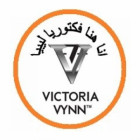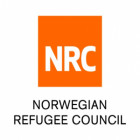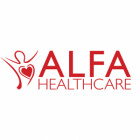وظيفة شاغرة
IDSR Consultant - WHO Country Office Libya
Job Description – IDSR Consultant (2303490) Contractual Arrangement: External consultant Contract Duration (Years, Months, Days): 5 Months Job Posting : Apr 12, 2023, 10:56:37 AM Closing Date : Apr 26, 2023, 11:59:00 PM Primary Location : : Libya-Tripoli Organization : EM_LIY WHO Representative’s Office, Libya Schedule : Full-time IMPORTANT NOTICE: Please note that the deadline for receipt of applications indicated above reflects your personal device’s system settings. Position Title: NCDC Consultant Purpose of the Consultancy The purpose of this consultancy is to support the NCDC in developing an Integrated Disease Surveillance and Response (IDSR) system, and to pilot it in selected municipalities, under the supervision of the Surveillance Technical officer. Background The COVID-19 pandemic has highlighted the urgent need for effective public health surveillance to detect potential health threats, monitor disease mortality and morbidity, and guide prevention and control measures. Although most countries of the Eastern Mediterranean Region have disease surveillance systems in place, many of them are vertical (i.e., they focus on a specific disease) and are not coordinated with other separate disease surveillance systems. This leads to duplication and gaps that result in the ineffective early detection of threats. In November 2021, at the 68th session of WHO’s Regional Committee for the Eastern Mediterranean, WHO’s regional office (EMRO) proposed that Member States of the Region commit to implementing an integrated disease surveillance system by the end of 2025. An integrated system will improve the efficiency of health information systems and enhance their effectiveness in the use of data to guide decisions, including for rapid response to epidemics, priority-setting, intervention planning, resource mobilization and allocation, and monitoring and evaluation. A regional strategy to guide Member States in strengthening and integrating their national surveillance systems with the support of WHO was presented. This strategy will feed into regional and global efforts to strengthen collective public health intelligence. Representatives of the Member States of the Region, including Libya, welcomed the strategy and requested support from WHO for their transition to integrated disease surveillance systems by 2025 Planned timelines (subject to confirmation) The duration of the consultancy is 5 months. Start date: 01/05/2023 End date: 30/09/2023 Work to be performed During the consultancy period, the consultant will support the MOH to develop and pilot an Integrated Disease Surveillance and Response initiatives in selected municipalities. Specific tasks include: Output 1: Develop a national IDSR strategy is developed Deliverables: Output 1.1: Conduct a desk review on the existing surveillance systems in Libya to determine the integration modalities for these surveillance systems and develop a recommended workplan for its implementation. Output 1.2: Review IDSR strategies from other countries in AFRO, EMRO and recommend adaptations to the Libyan context. Output 1.3: Support establishment of integrated disease surveillance and response committee in Libya including relevant stakeholders. Output 1.4: Discuss and identify transition steps from EWARN to IDSR in partnership with NCDC, HIC, EOC, Health District Offices, INGOs, WCO and EMRO. Output 1.5: Design a first draft of the IDSR strategy, ensuring it is aligned with IHR core capacities and the One Health approach. The strategy should also include surveillance at Points of Entry (PoEs). Output 1.6: Develop protocols, reporting tools and technical guidelines for implementation of IDSR, including linkage with event based and community surveillance. Output 1.7: Discuss, identify and define roles and responsibilities for the involved stakeholders through consultation meetings. Output 1.8: Conduct a national workshop to introduce the IDSR strategy to the key national and district/municipal level stakeholders. Output 2: Introduce an IDS in 5 municipalities Deliverables: Output 2.1: Assess & identify the staffing and logistic needs at the different levels of implementation of IDSR Output 2.2: Develop training materials for implementation of the operational plan, guidelines, tools and SOPs for strengthening surveillance and response in the selected 5 municipalities. Output 2.3: Arrange workshops with representatives from District Health Management, local NCDC branches, municipal councils and other relevant stakeholders from the pilot municipalities to present the strategy. Output 2.4: Conduct training-of-trainers (TOT) workshops on IDSR at NCDC’s headquarters. With support from EMRO’s Health Emergency Information and Risk Assessment (HIM) unit, WHO Libya will conduct TOT trainings in order to enable and empower the NCDC to take ownership of the piloting process vis-à-vis the municipalities. Output 2.5: Facilitate the cascade training for the health facility staff on IDS, disease case definition, recording, filling and reporting involving the master trainers: cascade trainings will target primarily the prioritized facilities. Output 2.6: Conduct trainings on detection for doctors, recording and reporting for surveillance officers and response measures: Staff (doctors, nurses, laboratory technicians) from pilot health facilities will also receive training on the detection of priority notifiable diseases and conditions. Output 2.7: Provide supervision support: Through Instant Messaging groups and supervisory visits, staff at the municipality level will receive supervision and support from the central level. They will also be encouraged to share their experiences, challenges and lessons learned to inform the next iterative phase of the IDSR roll-out. NCDC staff at central level will share a summary of these findings with WHO Libya and EMRO. Reporting: Monthly technical reports based on achieved deliverables Specific requirements – Qualifications required: First level university degree in medicine and an – Desirable: Advanced university degree in epidemiology, public health, quantitative epidemiology or health-related field with specialized training in communicable diseases and disease surveillance and response – Experience required: Up to 5 years of relevant experience, with national/international exposure, in quantitative epidemiology and implementing Integrated Disease surveillance and response systems, outbreak investigation and response in humanitarian settings. – Skills / Technical skills and knowledge: – Demonstrated knowledge of surveillance and monitoring systems as related to emergency response relief operations, complemented by skills in the field of epidemiological or statistical data collection, assessment, analysis and evaluation and monitoring in a public health context. – Proven ability to multitask across various planning and implementation processes within a highly demanding environment. – Demonstrated knowledge, competency, and professional skills on the public health aspects of infectious disease control, epidemic and pandemic preparedness, and response with particular attention to the application of an all-hazards approach in the context of the International Health Regulations and the use of event-based and indicator-based Surveillance, as well as descriptive epidemiology and principles of public health in communicable disease surveillance and response. – Ability to work as part of a team; – Strong organizational skills; – Proficiency in Microsoft Office (Word, Excel, PowerPoint), – Language requirements: Languages and levels required Arabic (Read – Write – Speak / Expert) English (Read – Write – Speak / Expert) Place of assignment The Consultant expected to perform her/his work in Libya, especially in Tripoli, Benghazi, and Sabha, to travel to these three cities. Medical clearance The selected Consultant will be expected to provide a medical certificate of fitness for work. Travel Visas requirements: it is the consultant’s responsibility to fulfil visa requirements and ask for visa support letter(s) if needed. Additional information: WHO has zero tolerance towards sexual exploitation and abuse (SEA), sexual harassment and other types of abusive conduct (i.e., discrimination, abuse of authority and harassment). All members of the WHO workforce have a role to play in promoting a safe and respectful workplace and should report to WHO any actual or suspected cases of SEA, sexual harassment and other types of abusive conduct. To ensure that individuals with a substantiated history of SEA, sexual harassment or other types of abusive conduct are not hired by the Organization, WHO will conduct a background verification of final candidates The post IDSR Consultant first appeared on LibyaCV.
IDSR Consultant – (2303490)
All travel arrangements will be made by WHO – WHO will not be responsible for tickets purchased by the Consultant without the express, prior authorization of WHO. While on mission under the terms of this consultancy, the Consultant will receive subsistence allowance.
لتقدم للوظيفة أنتهت صلاحية الاعلان






